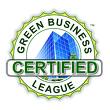 Who is Writing the Rules for the Cosmetic Industry?
Who is Writing the Rules for the Cosmetic Industry?March 30th, 2012 at 10:43 am by Stacy Malkan
Peter Barton Hutt of Covington and Burling, LLP, representing the biggest beauty corporations, testified before Congress this week that his clients’ products are perfectly safe and there’s no need to worry about silly little things like carcinogens in baby shampoo (we’re paraphrasing here). It’s all part of the Personal Care Products Council’s multi-million-dollar lobbying effort to write its own laws that could actually make things worse. For more about industry’s plan to write the rules so FDA can give them “maximum credibility” for toxic products, see Roll Call.
Update: The cosmetics industry PR operation is a gift that keeps on giving. Check out this attack blog just posted by notorious industry front group ACSH. Do they really think it’s smart to trot out Dr. Gilbert Ross, a former convict who spent time in jail for a Medicaid fraud scheme, to question the motives of health groups?
March 30th, 2012 at 10:03 am by Stacy Malkan
By Lisa Archer, director of Campaign for Safe Cosmetics at Breast Cancer Fund
“I have loved every minute of my career as a stylist until Brazilian Blowout completely changed my life. Our laws are obviously broken. We are pleading for you to help protect our health and our livelihood.” – Jennifer Arce, written testimony to Energy and Commerce Committee’s March 27 hearing on cosmetics safety.
Jennifer, like far too many of her colleagues and customers, has suffered a growing list of health problems after repeated exposure to cancer-causing formaldehyde from supposedly “formaldehyde-free” Brazilian Blowout.
Tuesday, in response to public outcry over formaldehyde in hair products, mercury in face cream and lead in lipstick, the House Energy and Commerce Health Subcommittee held the first Congressional hearing in 30 years on cosmetics safety. Industry representatives dominated the hearing, while people who have been hurt by toxic products — like Jennifer — were shut out of the process.
The committee plans to attach cosmetics legislation to a must-pass medical device and prescription drug user fee authorization bill. Currently, committee leadership is favoring an industry bill that would rubber stamp the status quo, leave out key provisions needed to protect our health and actually make things worse.
Cosmetics industry lobbyists are working non-stop to push this proposal that would make things worse, essentially enshrining into law decisions about ingredient safety made by the industry-funded Cosmetic Ingredient Review Panel — something that, according to FDA, would be “unprecedented” and possibly unconstitutional.
Industry is also pushing for federal preemption of state laws in order to override the 2005 California Safe Cosmetics Act, a law that enabled the California Attorney General to sue Brazilian Blowout and force warning labels on the products. In December, the Personal Care Products Council urged the state to de-fund and dismantle the state’s safe cosmetics program.
Essential public health protections could be set back another 70 years if industry gets away with writing its own laws that put industry profits over public health and handcuff states from taking action to protect people.
Despite the bad news, there were some truly hopeful moments at the hearing (thanks Reps. Jan Schakowsky and Ed Markey!) and we believe it’s still possible to gain meaningful, health-protective reform of our broken cosmetics laws.
This week, Reps. Frank Pallone (D-NJ) and John Dingell (D-MI) introduced the Cosmetics Safety Enhancement Act. These leaders may now be the last line of defense for the industry bill, and our best hope for strong meaningful public health protections. While the Dingell/Pallone bill includes many important provisions, it doesn’t go far enough to ensure cosmetics are safe.
Unlike the Safe Cosmetics Act introduced last year by Schakowsky (D-IL), Markey (D-MA) and Tammy Baldwin (D-WI), the Dingell/Pallone bill does not yet provide protections against carcinogens and reproductive toxins in cosmetics, require full disclosure of cosmetic ingredients, or contain a strong safety standard. We will be pushing for inclusion of these important provisions in the weeks ahead.
This is a truly critical moment — please join us to help protect the progress we have made together over these last 10 years. Sign up today for the Safe Cosmetics listserve for updates to receive important updates about what’s happening and how you can get involved.
Please also spread the word about the industry lobby on social media. Here are some helpful links: Industry dominates historic hearing on cosmetics safety and the Roll Call story that reveals how industry is desperately seeking “maximum credibility” from FDA.
With your help, this is a fight we can not and will not lose. For Jennifer and all of us, we demand meaningful cosmetics laws that remove the most dangerous chemicals from cosmetics, including chemicals linked to breast cancer, and include a strong safety standard to protect the most vulnerable people such as babies, pregnant moms and workers.Hairsylist speaks out: It’s time to ban toxic Brazilian Blowout
March 5th, 2012 at 7:19 pm by Stacy Malkan
For safe and healthy, nontoxic products for body and home visit here and
For exceptional nutritional and clean products visit here